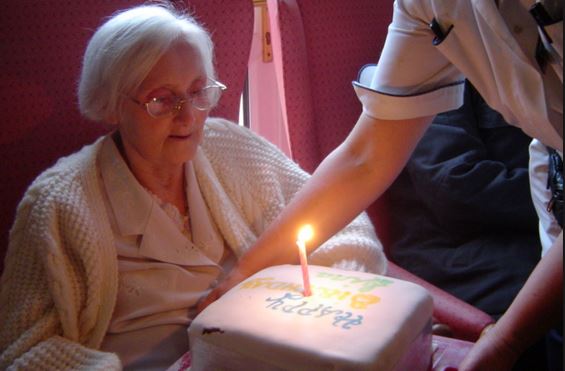What are Elder Care Companions?
Elder care companions can offer assistance to older individuals who still live independently, but may need some help in performing everyday tasks. Although elder care companions are considered to be a part of the healthcare industry, they are not necessarily responsible for any medical or clinical tasks with their patients. Some elder care companions may be licensed nurses, which mean that they can assist with therapy and medications, although this tends to fall into the category of home healthcare services.
One of the greatest health benefits that elder care companions do offer is in providing emotional, social, and mental support for patients. In many cases, this form of stimulation has shown highly positive results for people who are experiencing cognitive decline or depression. The presence of an elder care companion not only gives aid in accomplishing tangible tasks, but can also provide motivation and inspiration to remain involved and connected with daily living.
What Does an Elder Care Companion Do?
Elder care companions will be scheduled to make routine visits with their patient. This can range from once or twice a week to every day, depending upon the needs of the situation. By helping patients with a variety of activities, elder care companions are able to improve quality of life and maintain dignity for patients who wish to continue with independent living. Companions are also able to act as a mediator with family members, friends, and even other supporting health staff, in that they can voice patient concerns and also relay observations about the condition.
In most cases, elder care companions will fill a supportive role for household chores, personal tasks, and social considerations. This can include many of the following actions:
- Paying bills
- Shopping for groceries and other items
- Preparing meals throughout the day or for the week
- Housekeeping concerns, including cleaning and possible small repairs
- Caring for companion animals, including veterinary visits
- Providing supervision and assistance in filling out medical or legal documents
- Offering or finding transportation for patients
- Acting as a reminder for clinical visits and other appointments
- Helping to uphold medication protocols
- Ensuring patient safety in the home and on excursions
- Assisting with mobility
- Daily routines such as choosing clothing or getting dressed
- Encouraging social contact and assisting in meetings with friends and loved ones
- Providing engagement for conversations
- Answering phone calls and correspondence
- Taking part in activities around the home, such as painting or playing games
- Engaging in physical activities, including walks and even senior wellness classes
- Communicating with family members to give them updates on the patient’s condition
The amount of involvement that an elder care companion has can greatly depend upon the functionality of the patient. In many cases, simply having a companion present to monitor activities can be preventive for injuries and falls, and can also offer immediate access to medical care should an incident occur. Some of the greatest benefits of an elder care companion are in the realm of social engagement, as this provides the emotional care that can sometimes be lacking in situations of independent living.
Who Can Provide Elder Care Companionship?
The use of elder care companions is rapidly increasing, especially as a cost effective alternative to regular home medical care. This also means that there are a number of agencies and private service providers who can facilitate finding an appropriate elder care companion. A number of agencies will screen and provide volunteers for elder care companionship, and these services may be without charge. Healthcare social workers are often able to accommodate families who are searching for an elder care companion, and can set up a schedule for volunteers.
Along with volunteer groups, there are also federal programs for elder care companions and private groups that offer service. These may include a small fee, although government assistance agencies will often accept some form of insurance coverage.
- Certified home care and hospice agencies – this can include groups that are a part of the public health department or are simply regulated through federal agencies. Along with companion services, staff from these types of groups may also be qualified for home health care, and can be a wise choice if patients have a progressive health condition. Companions through these agencies are certified through federal standards, and quality of care is stringently regulated.
- Non-certified home service agencies – these are private groups that are recognized for providing non-medical assistance to the elder population. Staff members are neither licensed nor certified as with federal agencies, but employees will go through significant screenings and these agencies are generally rated or acknowledged by industry groups.
- Independent providers – this can include self-employed care takers, high school students, or other caring individuals who may only attend to one or two patients at a time. Often, family members of the patient will be familiar with the elder care companion and retain their services on a personal basis. Independent providers tend not to be licensed, although some may be fully certified as a private contractor for companion care.
Are There Benefits in Certified Elder Care Companions?
Although a certified elder care companion can give families greater peace of mind, many non-certified companions can also be ideal. If the companion is an individual who is a close family friend, then the choice to use someone who is not licensed can be just as valid as seeking out a certified agency.
It should be understood that the use of elder care companions is a growing field in ancillary healthcare, and regulations to provide service can vary by state. Certified companions can find employment with municipal health departments and government agencies, and can also go through further educational requirements to specialize in specific conditions such as Alzheimer’s, dementias, and special needs. The choice of a licensed or non-licensed companion can also come down to the individual needs of the patient and the family. Overall, the greatest qualifications that should be sought in an elder care companion are compassion, sympathy, and the ability to engage the patient.





